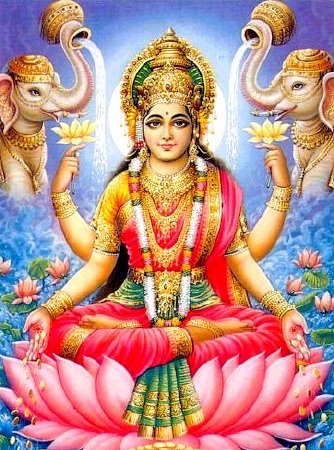This is a commentary on Verse 4 from The Great Hymn to Mahalakshmi

Thou Art the Giver of intelligence and success
And of both worldly enjoyment and liberation
Thou Art the self of mantra,
O Mahalakshmi, obeisance to Thee.
The parallelism of the second and third lines could be lost upon a modern reader, who would be inclined to read intelligence, success and worldly enjoyment as three broadly material goods and liberation as the only spiritual one. Actually they are two matched pairs, for Intelligence, in traditional thought does not mean mere worldly reason, but that transcendent faculty by which we grasp the fundamental Realities behind worldly existence (and which is thus the necessary precursor to reason). Reason is the lunar reflection of the Solar Intelligence. Thus we have an example of what is called chiastic (or X-shaped) parallelism:

Intelligence and liberation (from worldly attachments) belong together, as do success and worldly enjoyment. The importance of this verse is its indication of the balance between worldly and spiritual goods offered by Mahalakshmi. Worldly people pursue only the things of this world. Spiritual ascetics preach a complete abstinence from the world. Worshipping our bounteous Lady, we may combine the two — innocent worldly pleasure and spiritual advancement. In the picture the lotus flowers and the gold coins can be seen as representing the spiritual and worldly gifts respectively.
The statement Thou Art the self of mantra must be understood in the light of the doctrine that a mantra, being a representation of one of the cardinal modifications of the Primordial Sound, embodies the Deity Herself.
For the full hymn and commentary:
The Great Hymn to Mahalakshmi
Comments Off on Intelligence and Success